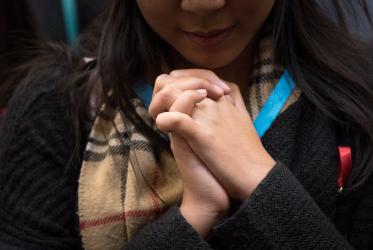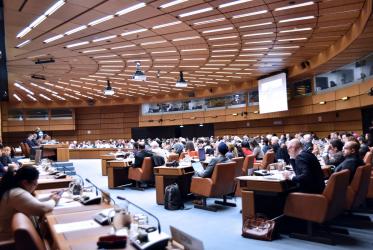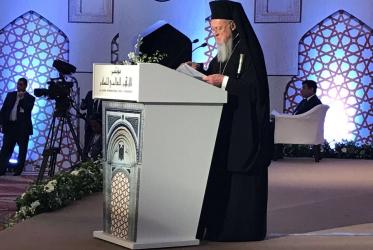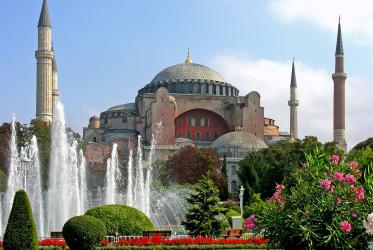Displaying 1 - 20 of 22
03 November 2020
Christian communicators work to counter hate speech against refugees
10 December 2018
Turning plans into action to prevent incitement to violence
14 February 2018
WCC general secretary mourns lost lives, calls for end to violence
11 December 2016
Facilitating peace with passion
26 July 2016
WCC/UN conference calls for coordinated action on refugee crisis
20 January 2016
WCC urges responsibility for and support to the refugees in Europe
04 September 2015
WCC Executive Committee speaks out on migrant crises
12 June 2015
WCC welcomes resumption of peace talks on Cyprus
18 May 2015
Momentum builds for ban on nuclear weapons
16 December 2014













